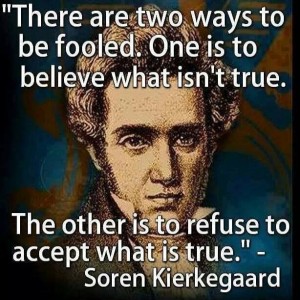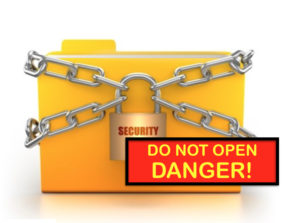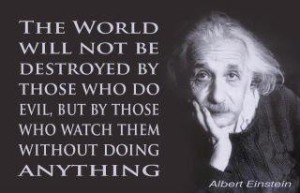 The von der Schulenburg case should be a compulsory Case Study for anyone interested in how the UN actually operates, and how OIOS investigations are used for political purposes.
The von der Schulenburg case should be a compulsory Case Study for anyone interested in how the UN actually operates, and how OIOS investigations are used for political purposes.
Michael von Schulenburg was, by all accounts, much respected and successful in his role as Executive Representative of the Secretary-General (ERSG), the head of the UNIPSIL mission in Sierra Leone.
His mandate involved promoting democracy in that post-conflict country, which is a fine and noble objective, of course, except if you happen to be the sitting President and are concerned about the risk of losing the upcoming election to the opposition party. In that case, anything the United Nations ERSG does to assist the opposition party represents a threat to his re-election chances….
What the president of Sierra Leone wanted, was for Mr. von Schulenburg to be replaced by, well, ideally by a glove puppet, but certainly someone who did not represent any sort of political threat, so he put pressure on the Secretary-General.
 Now, anyone who thinks that Ban Ki Moon has the strength of character to stand up to the President of a Member State is welcome to that opinion, but democracy is not really all that important in the UN, and what the Secretary-General needed was a excuse to do what the President wanted.
Now, anyone who thinks that Ban Ki Moon has the strength of character to stand up to the President of a Member State is welcome to that opinion, but democracy is not really all that important in the UN, and what the Secretary-General needed was a excuse to do what the President wanted.
He also needed a way to do that that did not involve sending anything to the General Assembly. They, after all, might start asking awkward questions.
The UN doesn’t like awkward questions.
Awkward questions are… well… awkward. They threaten to lift the petticoats of Ban Ki Moon’s public image as the head of a highly efficient and utterly ethical Secretariat – and any sort of critical public scrutiny is to be avoided at all costs. So, imagine how useful it would be if OIOS could provide the excuse the Secretary-General needed!
……To cut a long story short; nobody should be surprised to find that that was exactly what happened.
Let’s start with a bit of background here, because the strategy is essentially this:
It is established law in the UN that a staff member cannot challenge the decision to initiate in investigation; no matter how ridiculous the grounds. That rule is the Gestapo’s Godsend.
Almost any excuse can therefore be contrived to have someone investigated. What passes for “Administrative Law” in the UN recognises neither the concept of unreasonableness nor that of proportionality….. making it very easy for the Organization to maake a ountain out of molehill when it suits them. An excuse was certainly found to investigate Mr. von der Schulenburg, and he was Head of a Mission. Remember also that Anders Kompass was Director of Field Operations & Technical Cooperation in UNHCR; and was investigated for co-operating on a matter arising out of a field operation. Michael Stefanovic was Director of Investigations and he was investigated for a comment about rats in the subway in a recruitment matter for which he was not even the Hiring Manager. I was a mere investigator, and….. oh let’s not even go there….)
The staff member can then be suspended, removed from his post if necessary, subjected to all manner of unnecessary stress and harassment and have their career and professional reputation very seriously damaged... and there is not a thing they can do about it. The UN legal system requires that they wait till the very end of the process (and the Organization has wasted an absolute fortune) before they have any legal right to challenge anything in the UNDT.
So the investigation can drag on for years….. and all the while, the hapless staff member is isolated, harassed, insulted and bullied until he simply loses the will to live….or simply resigns in disgust.
Then, in the end; ….nothing. Its a damp squib. They are cleared of any wrongdoing, or given a minor slap in the wrist which the Organization will claim is only an “administrative measure”, not a “disciplinary measure” and therefore cannot be challenged.
It is legalised harassment and the Organization is no stranger to the tactic, as the case of Mr. von der Schulenburg shows.
…”Aha,” you say, “but that cannot be! Surely if a complaint was made in bad faith, that would itself be misconduct ….and the person making that bad faith complaint could be disciplined for it.”
In theory; yes. In practice; don’t make me laugh.
Remember that Stefanovic complained that Roberta Baldini’s complaint against him had been made in bad faith; the UN was not interested in pursuing it. I complained that Roberta Baldini’s complaint against me (for the “possible assault”) had been made in bad faith; the UN was not interested in pursuing it.Does anyone get investigated for making a bad faith complaint? Oh yes. Look at the OIOS Annual Report 2016 – you will see. The OIOS Annual Report for Peacekeeping 2015 records there were four such investigations in the year in para 87; you will see they were members of the Staff Union who were investigated for making bad faith complaints after they alleged they were assaulted by UN police officers. OIOS/ID New York had two reports of bad faith compaints, and nothing was done about either. It’s good to have friends in high places.
Curiously enough, in this case Mr. von der Schulenburg also made a complaint to Lapointe against the “investigators” (and the term is used advisedly) who interviewed him. What happened to the complaint? Very good question. All record of it seems it vanished like the proverbial fart in a strong wind.….
George Orwell nailed it in ‘Animal Farm’ – “All animals are equal, but some are more equal than others.”
But why do I care?
I only learned about this by accident in February 2015, by which time I had had just about enough of the UN’s bullying tactics.
When I joined, I undertook to act in the best interests of the Organization, and I believe that to mean the General Assembly of the Member States. I worked for what was SUPPOSED TO BE an “independent” office. I never believes I owed any loyalty to any one individual (no matter how big their ego) nor do I believe that it is in the best interests of the General Assembly of the Member States that egregious abuses of power be tolerated. Pardon me for believing in something called the Rule of Law.
In the beginning, I knew absolutely nothing about Mr. von der Schulenburg other than that his name appeared on the UNDT schedule one day, and I picked up a whisper that Suzette Schultz’s “Professional Practices Section” (please don’t snigger at the use of the word ‘professional’ – not everyone understands the joke) were trying to conceal the fact that there was supposed to be a hearing in the UNDT the following week, then all of a sudden the case was settled and was expunged from the face of the Earth…..
So being an investigator, I started poking my nose into what information was publicly available on the matter, and I did something called “analysis”. Now, OIOS does not approve of “analysis” and by this time Lapointe was bending over backwards to be rid of me, but I was waiting for my contract to run out anyway.
What I found was a story obviously filed under “Librorum Prohibitorum” because it is the less than glorious tale of how OIOS acted as the Private Gestapo of the 38th floor…
 Now, the most interesting thing about this whole sorry saga is that it was pieced together entirely from open source material, which is, of course, NOT what “investigators” are supposed to do in OIOS but never mind.)
Now, the most interesting thing about this whole sorry saga is that it was pieced together entirely from open source material, which is, of course, NOT what “investigators” are supposed to do in OIOS but never mind.)
I did ask Lapointe and everyone else in a management position if they cared to comment and – naturally – nobody was willing to say anything. A short time later, one normally tight-lipped individual did however concede, very grudgingly: “You nailed the ‘why’ but you didn’t get the ‘how.’”
Oh really? By that time (thanks to the kindness of strangers) my Christmas had come early and I had the whole story ….. and was making connections between the von der Schulenburg investigation and the Sirohi investigation – and who was pulling the strings on both.
This makes for a very interesting Case Study, for a number of reasons (not least of which is that OIOS “forgot” to make any reference to it in their Annual Report.) This all took place very shortly after Mrs Dudley had been hand-picked to head up the Conduct & Discipline Unit, and we are expected to believe that the Mr. von der Schulenburg was not subjected to a thoroughly unethical pincer movement. There are some striking similarities to the Kompass case too. Both show how the UN treats people who they must know from the outset had done absolutely nothing wrong.
The lesson for everyone else is very clear; If OIOS does that to an SRSG, or a D2….. what will they do to a lowly ‘P’ or heaven-forbid even “G’ staff?
I joined the UN to be an investigator. That is what they said they wanted, but it is very clear that OIOS didn’t actually want anyone who could or would do any real investigating. Oh well….. too bad. I did not sign on to be a member of Ban Ki Moon’s secret police, or to take part in an unjustified hatchet job on anyone’s career. If I had wanted to do that I would have applied elsewhere……
